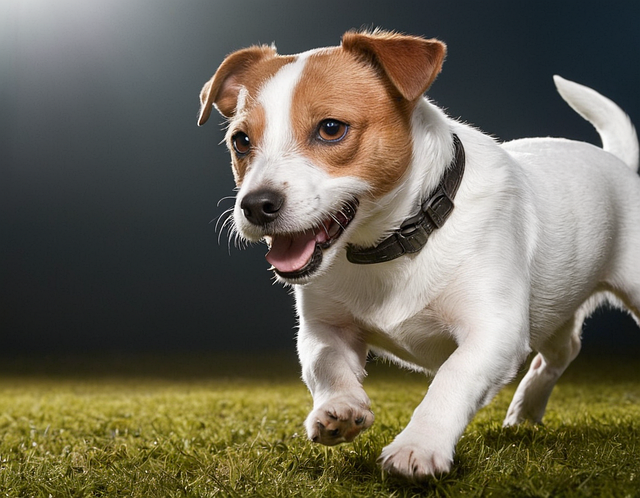
How do i train my dog to be obedient?
Watching your dog dart across the park ignoring your calls isn’t just frustrating—it can put them at risk near busy streets or public spaces.
Ever watched your dog pop up on its hind legs to beg for a treat and thought, “Could I turn this into an actual skill?” Teaching your dog to stay standing isn’t just a parlor trick—it’s a handy behavior that can aid in vet exams, help aging dogs navigate stairs, or simply earn you some oohs and aahs at the local dog meetup. But before you start training, let’s chat about keeping things safe, legal, and fun for your furry pal.
First off, it’s crucial to understand your dog’s body. Breeds with elongated spines, like Basset Hounds or Corgis, are more vulnerable to back problems. In many communities, there are strict animal welfare guidelines against activities that put unnecessary strain on pets. Think of it like this: if you wouldn’t ask a human with a bad back to do a handstand, don’t push your dog into prolonged standing. A quick check-up with your vet can confirm whether your dog is physically up for this training. And hey, if your dog has any existing joint or spine issues, it’s best to skip this and focus on other tricks.
Now, onto the fun part—training! The secret sauce? Positive reinforcement. Forget about pushing or pulling your dog into position. Instead, grab some tiny, irresistible treats—we’re talking about bite-sized pieces of rotisserie chicken or low-sodium cheese. Hold the treat just above your dog’s nose, then slowly lift it up. As their nose follows the treat, their front paws will naturally lift off the ground. The instant those hind legs support their weight, even for a second, use a clear marker word like “Yes!” and immediately give them the treat. It’s like teaching your dog a new language, where “Yes!” means “You nailed it, here’s your reward!”
 Consistency matters big time in dog training. Aim for short sessions, around 5 minutes each, a few times a day. Dogs get bored quickly, and long, drawn-out training can turn into a chore for both of you. As your dog gets better at standing briefly, start adding a few seconds to the duration. But always end on a high note—if they hold the position for 3 seconds instead of your target 5, that’s still a win! Celebrate it, and they’ll be eager for the next session.
Consistency matters big time in dog training. Aim for short sessions, around 5 minutes each, a few times a day. Dogs get bored quickly, and long, drawn-out training can turn into a chore for both of you. As your dog gets better at standing briefly, start adding a few seconds to the duration. But always end on a high note—if they hold the position for 3 seconds instead of your target 5, that’s still a win! Celebrate it, and they’ll be eager for the next session.
Once your dog’s standing confidently for a few seconds, it’s time to introduce a command. Pick a simple word like “Stand” and say it clearly right before you lift the treat. Repeat this over and over until they start standing up as soon as they hear the word, even without the treat in sight. It’s all about building that association between the word and the action.
Respecting your dog’s boundaries is non-negotiable. If they seem stressed, turn their head away, or back off during training, it’s a sign to take a break. In the pet-loving culture across many regions, dogs are considered part of the family, and forcing them into uncomfortable situations is a big no-no. Remember, the goal is to have a happy, willing partner in this training journey.
Living in an apartment? Be mindful of noise. Some dogs get excited during training and might bark or whine. Local noise regulations could come into play, so try to schedule your sessions at times when you’re less likely to bother the neighbors, or find a quiet indoor spot where your dog can focus without distractions.
If you ever dream of showing off your dog’s new skill at a local fair or competition, make sure you’re in the clear with animal performance laws. Different areas have specific rules about what tricks are allowed and how animals should be treated during performances. Do your research to avoid any legal headaches down the line.
Teaching your dog to stay standing is more than just a trick—it’s a way to deepen your bond, challenge their mind, and give them a sense of accomplishment. With patience, the right treats, and a focus on safety and consent, you’ll have a standing superstar in no time. So go ahead, grab those treats, and start creating some amazing memories with your four-legged friend!

Watching your dog dart across the park ignoring your calls isn’t just frustrating—it can put them at risk near busy streets or public spaces.

New puppy owners often find themselves rushing to clean up accidents before they set in, and that’s where puppy pad training becomes a game-changer.

If you've noticed your dog's waistline disappearing and your veterinarian has mentioned those few extra pounds, your first instinct might be to simply reduce the amount of food in their bowl.

Training a dog to use a designated spot indoors isn’t as daunting as many new owners fear, but it does take consistency and an understanding of your pet’s needs.

That moment of dread on a walk is all too familiar for many new dog owners. You see another dog approaching down the sidewalk of your neighborhood

If the sight of another dog on your neighborhood walk makes your heart sink as your own dog erupts into a frenzy of barking and lunging, you're not alone.